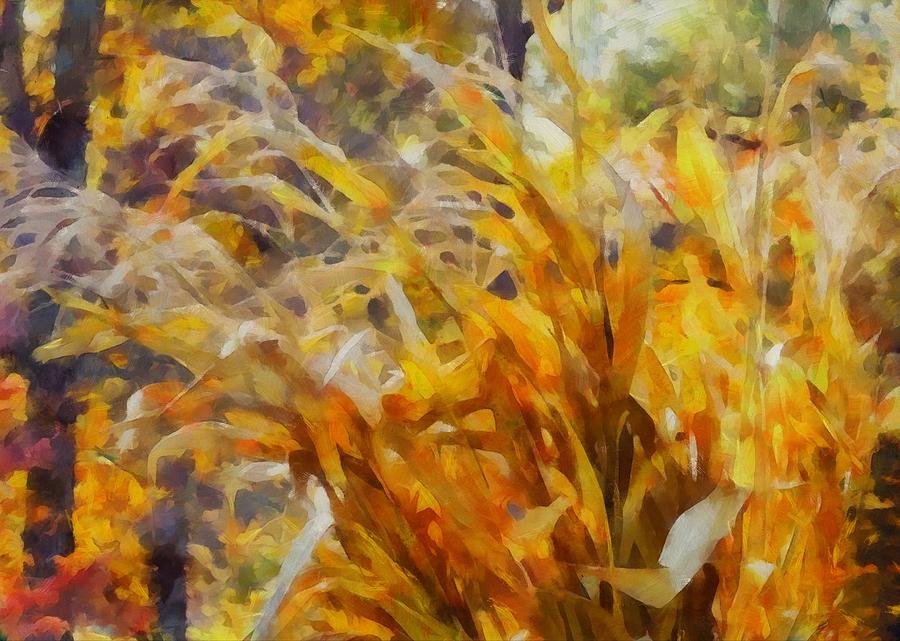
Welcome to another installment of Indian Poetry, where Scarriet briefly engages each month with 7 contemporary poets from India who write in English. For the English-speaking reader, World Letters, for a few minutes, is spread out here before you, accessible in all its beauty and complexity. Scarriet does not cheer or flatter—the opinions are sincere.
Tabish Khair writes essays and novels, and his poems (published by a major publisher) read like good prose—which could be good or bad, depending on what you want from your poetry. Poetry is the fine dining of food. We want our poetry to be cooked with the best ingredients—that is, we want our poets to be slightly smarter than our prose writers, be slightly more educated, have a few more ideas—as they whip up the magic preparation of what we call poetry.
There are thousands of poets whose poems rise to a certain prose competence, and there is always a feeling when reading their poetry, even with some admiration: I wish this were less like prose and more like poetry.
Tabish Khair is, unfortunately, one of these extremely competent poets. Take the first stanza of “Nurse’s Tales, Retold:”
Because the east wind bears the semen smell of rain,
A warm smell like that of shawls worn by young women
Over a long journey of sea, plain and mountains,
The peacock spreads the Japanese fan of its tail and dances,
And dances until it catches sight of its scaled and ugly feet.
The first line has two wonderful things going for it: a lovely iambic rhythm and an arresting phrase, “semen smell of rain.”
But the second line is pure prose: It explains. It uses too many words. And, the music is dull. And the effect is…well, we’re now reading prose…”A warm smell like that of shawls worn by young women.”
The difference is startling. Put “the semen smell of rain” next to “shawls worn by young women.” There’s no musical correspondence whatsoever. The poem turned into a novel after one line.
Khair’s lyric subjects, and his acute sensitivity to those subjects, are exquisite.
Of course it is asking a lot for a poet to be lyrically exquisite in every line.
*
Akhil Katyal understands what poetry is—journalism which tells important news by recounting small things. Most importantly, he is witty; he also feels deeply; and he does his research—one could easily see him writing investigative prose pieces for Vanity Fair, the New York Times, or the New Yorker. (Katyal is a college poetry teacher)
Is poetry journalism?
Today, the best of it is—educated readers these days read journalism and novels; they don’t read much poetry, and so a poet strikes a compromise: let my poem be a journalistic essay—detailed, factual, up-to-date, like any decent piece of journalism, one-sided? Sure. Maybe political, maybe not.
But finally, and this is what a good poet like Katyal does—add a touch of sentimentality, just a touch, and widen the time/space window, so the whole, at last, seems more poetry than journalism.
Here’s an excellent example (notice the journalism: “ozone,” etc) from Akhil Katyal, (and a fine poem):
For Someone Who Will Read This 500 Years From Now
How are you?
I’m sure a lot has changed
between my time and yours,
but we’re not very different,
you have only thing on me—
hindsight.
I have all these questions for you:
Do cars fly now?
Is Mumbai still standing by the sea?
How do you folks manage without ozone?
Have the aliens come yet?
Who is still remembered from my century?
How long did India and Pakistan last?
When did Kashmir become free?
It must be surprising for you
looking at our time,
our lives must seem so strange to you,
our wars so little
our toilets for “men” and “women”
must make you laugh
our cutting down of trees
would be listed in your “Early Causes”
our poetry in which the moon is still
a thing far away
must make you wonder, both for that moon
and for poetry.
You must be baffled,
that we couldn’t even imagine
the things you now take for granted.
But let that be,
would you do me a favor,
for “old time’s sake”?
Would you go to Humayun’s Tomb
In what used to be Delhi
and just as you’re climbing the front stairs,
near the fourth step, I have cut into
the stone wall to your left-
“Akhil loves Rohit”
Will you go and look for it?
Make sure it’s still there?
**
Anand Thakore, with a musical, and ‘some schooling in England,’ background, was a real delight for this critic to discover.
Is Thakore known in America? A poem like “Elephant Bathing” almost needs no comment—it is that good.
Note how much is going on in the poem, driven by a Wordworthian mental energy, and expressed with such ease and clarity:
He will never go there again,
Hip-flask in pocket, camera at hand,
Far from the crowded confines
Of the human animal he could not trust,
To the lush cricket-choired thickets
He so jealously loved;
Dense, creeper-canopied spaces
Where he would listen eagerly
For the sudden slither of a python’s tail,
Or the persistent mating calls of leopard and crane,
Studying the stealthy ways of predator and prey,
Till panther, bison, hyena and stag
Seemed part of a single guileless continuum
He had only begun to see his part in.
Now home and city hunt him down,
Building about him their busy labyrinth
Of doctors, nurses, brothers, and sons;
Though tiger and spotted deer remain,
Frozen above his bed in black and white.
An egret pecks noiselessly at a crocodile’s jaws,
As pale flamingoes, stripped irretrievably of their pinks,
Leap into a flight forever deferred.
Where you are going, they seem to say,
You will have no need for us or all you remember.
And yet the thought of getting there is not unlike
A great lone tusker taking the plunge,
His vast grey bulk sinking below the riverline
Against a clear black sky,
Till there is no more of him to see
Than a single tusk,
White as a quarter-moon in mid-July,
Before the coming of a cloud.
There is more poetry in Anand Thakore’s hyphens than in most poets’ metaphors.
The lovely syntax, which ends in lines like, “He had only begun to see his part in,” is magnificent. The worst praise given to Thakore would be to praise his grammar—as powerful, smooth and sure as the instinct of an animal—because grammar makes most poets, as poets, uncomfortable—which is a terrible shame.
Anand Thakore, on every poetic level, is a master.
***
Jeet Thayil is the classic ventriloquist-as-poet—there exists a happy estrangement between the poet and himself: he, who is never amused, and lives in a kind of continual panic—talks directly to himself, for his own amusement.
There are those who “try and write a poem for others to read,” and then there are those who write for themselves alone, and, after it’s finished, say, “Oh! that will do for a poem.” Thayil is very much in the latter camp, and really, it’s the better camp to be in.
This state of splitting oneself up—“I’m going to start talking to myself now—not going to write a poem!—just talking!…” is the ventriloquism of the poet talking through (during?) the poem—we doubt the ghostly voice coming through the poem and we doubt the ghostly poem itself, but somewhere in the back of our brains the two meet up, and all is good.
Ultimately, any trick—the one practiced by Thayil, or any other—to “make what you’re writing seem like poetry” is going to have the same effect as the leaf which ‘gives off green,’ which looks green, but has no green in it—the poetry is a sign there is no poetry at all in the person who is crying to us “as a poet.” The poet is hollow, empty—a ghost. And this awareness that one is hollow is the one thing which makes the poet feel aesthetic, or, if aesthetics is not a hang-up, reassured. And, of course, the projected voice, which wants no part of the poet, is a ghost, too.
As we would expect, a desperation of ghosts exist everywhere in Thayil’s poetry.
Life Sentence
Let’s say you’re not opposed to the ghost
in principle, you understand her neediness,
and let’s say she’s distracted, or busy,
she’s busy looking for a way back in,
but the shore appears distant,
not to mention, impossible to attain,
a far-off place where her former friends
no longer speak her name, which is lost,
and no word she hears is audible
through the static and the clatter;
so let’s say you forget to speak her name,
you do not repeat her lovely name,
because your talk is of meat and money,
and let’s say you’re not crazy or bitter,
it’s just that you don’t want to hear her say,
Why, why did you not look after me?
****
Saima Afreen writes apocalyptic poetry—the kind where the end of the world is in every line; blood, stars, milk, grandparents, fire—a blinding, cosmic rhetoric makes the reality described in the poems resemble a few seconds after a nuclear blast; the shower of debris is the poetry—blown to bits by poetry, covering us in ash; the quotidian is gone; and this is both the weakness and the strength of such poetry. We have the ability to absorb such verse, but the verse seems almost eager, at times, to destroy that ability.
Squeezed sunset
Adds its fire to blood;
the skin holds kilns
of centuries, flickering, melting
lifting rusted letter-boxes
by their roots, the frost within
the struggle of light.
Is how her poem, “Valediction” begins.
Saima Afreen writes fiercely, her poetry lifting us up in its arms, to put us down, who knows where.
*****
Anupama Raju is mystical, playful, strange, and, when not too abstract, or self-resigned, a very strong poet.
Everyday Sounds
The neighbour slams the door,
swearing at an unwelcome milkman,
expects his next guest to arrive –
the other he would like to murder.
The lady upstairs grates a coconut,
drags a chair across the room,
hopes it will drown the argument
with the other whom she cannot hate.
The child downstairs wails,
holds a gun to her parent’s head,
screaming for the brother’s toy –
the other she wouldn’t grow up with.
You chew weak tea without slurping,
read the papers, talk of the world’s woes
in your succulent prose while I respond in insipid poetry –
the other language you don’t acknowledge.
I continue to speak.
The apartment house chaos is described well—especially in the second stanza, with the half-rhymed stanza of “coconut, room, argument, hate.”
Is it wrong to wish the poet had fought a little harder in the final stanza?
“I respond in insipid poetry—the other language you don’t acknowledge. I continue to speak” is perhaps meant to be other than what it seems, but to me, it seems like surrender. It’s impossible to pronounce “in insipid” without sounding insipid. The sounds of the apartment house are more interesting, and perhaps this is the point. Is “I continue to speak” meant to be heroic, helpless, or both? Raju is teasingly mystical, and if you don’t ask too many questions, I think you’ll quite enjoy her poetry.
******
Sujatha Mathai has published five books of poems; she uses poetry to—inspire.
Almost 500 years ago, in his Sonnets, Shakespeare asked, what is poetry’s “use?” It turned out, for Shakespeare, it was simple: to inspire romance, marriage, and reproduction.
One goes back further in history and finds “The Art of Love” by Ovid, which gave advice to lovers.
Contemporary views on love have taken a darker turn, as more and more voices are heard, many struggling with grim survival, and the urgency of love and breeding has been replaced by U.N.-type concerns of individual rights and sustainability.
In the following poem by Mathai, the pragmatic grandmother has the most interesting line—it’s the latter part of the poem (which we sympathize with, of course) which unfortunately becomes a bit abstract.
Light
“He who seeks light must learn to walk in the dark” —St. John of the Cross
When I was seventeen
And dreaming of distant lands
And faraway loves,
My grandmother said
‘Get her married
before the light
goes out of her face.’
The light in a woman’s face
Should not be so brief.
It’s meant to last a long time,
Nourished by the soul.
Well, they got me married,
and
put out that light.
But I learned to live in candle-light
When the other lights went out.
One learns by subtle contact to reach
Electricity at most mysterious levels.
Light goes from the face, but
Survival lends one light
that shines most brightly.
She who seeks light,
Must learn to walk in the darkness
On her own road.
*******
This ends our July report. Thanks, as always, to Linda Ashok, the inspiration for this international sharing.




























